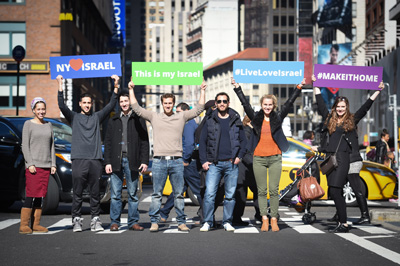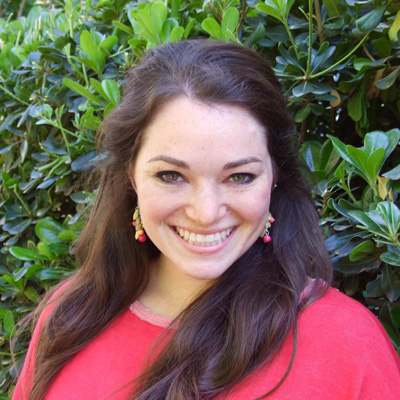From Chicago to Jerusalem: Two Homes, One Memory
Permanent link All Posts
Photo credit: Shahar Azran
Growing up in the Chicago Jewish community, I was raised with a deep sense of pride in our history. I was taught how to love my community and to love my city because of its rich cultural history. Chicago's Jewish community is marked by people who really care about each other and I knew growing up that I was never alone.
Since making aliyah and moving to Israel three years ago, I've realized how fortunate I was to have spent not only my childhood, but also my formative college years, in such a tight-knit place. Yet, in Israel, I feel a distinctly different sense of fulfillment.
One of my Jewish heroes, the educator and visionary Avraham Infeld, says that "being Jewish is like having a five-legged table" standing on memory, family, covenant, Israel, and Hebrew. Interestingly, Infeld refers to Jewish "memory," as opposed to Jewish "history," because unlike a history book, he explains that memory is a living thing driving us forward constantly.
Living in Israel, this sentiment proves true for me on a daily basis. I feel as though I am tapping into a living, vibrant communal memory.
Today, when I ride the bus in Jerusalem, the thousands of years of Jewish memory passing by my window are also pulsing through my veins, bringing me in and making me part of it. These quiet, passing moments help validate my decision to move to Israel, because at the end of the day, it was a choice I made -- and it wasn't easy.
I've always had a deep connection to Israel. I participated in Jewish life in ways that will sound very familiar to many of my peers. I was raised in a religious Zionist household, studied in Israel after high school, served as president and Israel Intern of my campus Hillel, and already had family and friends living in Israel when I made aliyah.
Still, aliyah is an individual decision, and everyone has to make it for her or himself.
I have also realized that, like with any major life decision, whether it's graduating school or moving to a new city, you have to really want it in order to succeed. Otherwise, it can be too easy to get discouraged. That's just human nature. When it comes to Israel, people talk about the wars and the violence and the bureaucracy and the supposedly rude disposition of Israelis, but knowing these issues in the abstract versus dealing with them in real life are two different things.
No one prepares you for when the IDF enters Gaza and you have loved ones fighting there. No one prepares you for when terror attacks start happening on a daily basis, and you stop feeling comfortable wearing headphones while taking a walk or allowing yourself to doze off on the bus. And putting the waves of terror and violence aside, it's tough to prepare to take on a new identity of "immigrant," an identity I will carry for the rest of my life. I've been learning to embrace a new normal and everything that comes along with it as part of the journey. Just like Chicago, or any city, you can't have the good aspects without the challenging ones.
Ultimately, finding ways to remind yourself that you do, in fact, want to be in Israel is not as hard as you might think.
This country has a funny way of presenting us with striking moments of clarity and inspiration. I once had a cab driver who thought I was a native Israeli because of my Hebrew during the drive, only for me to get flustered and promptly forget the Hebrew word for "compliment." And I recall conversations with strangers on international flights that have reminded me that life is equally fragile wherever you are. Sometimes these moments will be fleeting, and sometimes they plant themselves firmly in your head.
One of those lasting moments came last April while I was working at Yad Vashem experiencing the national ceremony for Yom HaShoah, Israel's Holocaust Remembrance Day, for the first time. Each year, six Holocaust survivors are chosen to share their stories and light six torches symbolic of the six million Jews who were murdered in the Shoah. One of the torch-lighters was Avraham Harshalom, who told his story about surviving the camps, escaping to Israel and fighting to establish its independence. After the ceremony, I approached Avraham in awe just to say "thank you." I thanked him not only for his service to our country and his contribution to Jewish memory, but also for the stark reminder that living in Israel, today, right now, is a privilege not to be taken for granted, and it's something that I want.
History can be documented and catalogued on paper, sealed in a book or put on a shelf. Memory, on the other hand, can be fuzzy at times - but it moves us and it's personal. That is why I live in Israel, because being here makes my Jewish memory lucid and enduring and alive and provides me with endless motivation to continue embracing this journey.

Courtesy Katie Matanky
Katie Matanky is a proud Chicago native living in Jerusalem and working in International Relations at Yad Vashem. She made Aliyah on the 50th Nefesh B'Nefesh charter flight, in 2013.
Learn more about the aliyah process at theSpring Aliyah Fair in Skokie on March 9.



.jpg)



